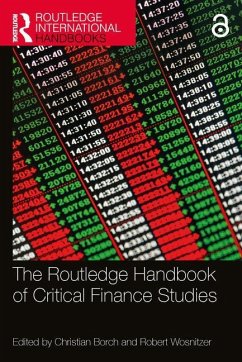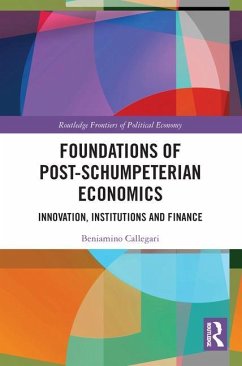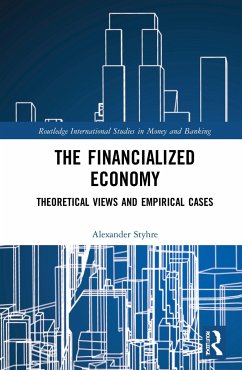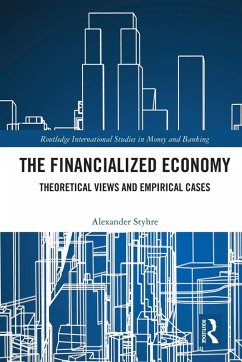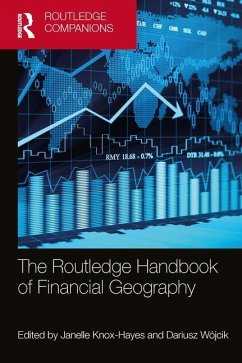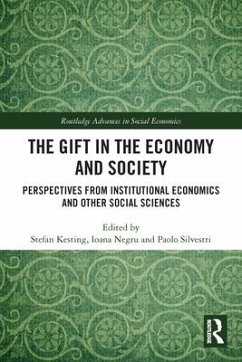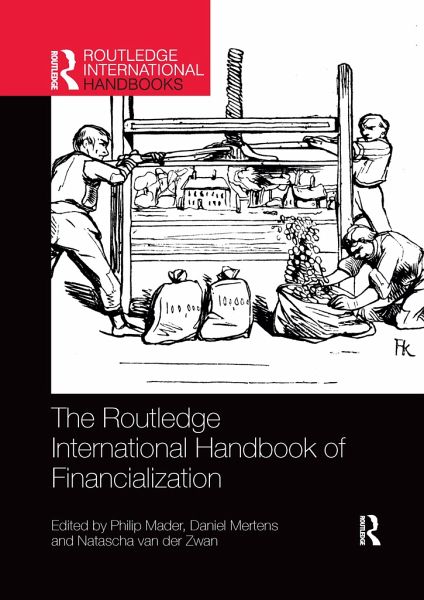
The Routledge International Handbook of Financialization
Versandkostenfrei!
Versandfertig in 6-10 Tagen
51,99 €
inkl. MwSt.

PAYBACK Punkte
26 °P sammeln!
Financialization has become the go-to term for scholars grappling with the growth of finance. This Handbook offers the first comprehensive survey of the scholarship on financialization, connecting finance with changes in politics, technology, culture, society and the economy.It takes stock of the diverse avenues of research that comprise financialization studies and the contributions they have made to understanding the changes in contemporary societies driven by the rise of finance. The chapters chart the field's evolution from research describing and critiquing the manifestations of financial...
Financialization has become the go-to term for scholars grappling with the growth of finance. This Handbook offers the first comprehensive survey of the scholarship on financialization, connecting finance with changes in politics, technology, culture, society and the economy.
It takes stock of the diverse avenues of research that comprise financialization studies and the contributions they have made to understanding the changes in contemporary societies driven by the rise of finance. The chapters chart the field's evolution from research describing and critiquing the manifestations of financialization towards scholarship that pinpoints the driving forces, mechanisms and boundaries of financialization.
Written for researchers and students not only in economics but from across the social sciences and the humanities, this book offers a decidedly global and pluri-disciplinary view on financialization for those who are looking to understand the changing face of finance and its consequences.
It takes stock of the diverse avenues of research that comprise financialization studies and the contributions they have made to understanding the changes in contemporary societies driven by the rise of finance. The chapters chart the field's evolution from research describing and critiquing the manifestations of financialization towards scholarship that pinpoints the driving forces, mechanisms and boundaries of financialization.
Written for researchers and students not only in economics but from across the social sciences and the humanities, this book offers a decidedly global and pluri-disciplinary view on financialization for those who are looking to understand the changing face of finance and its consequences.





